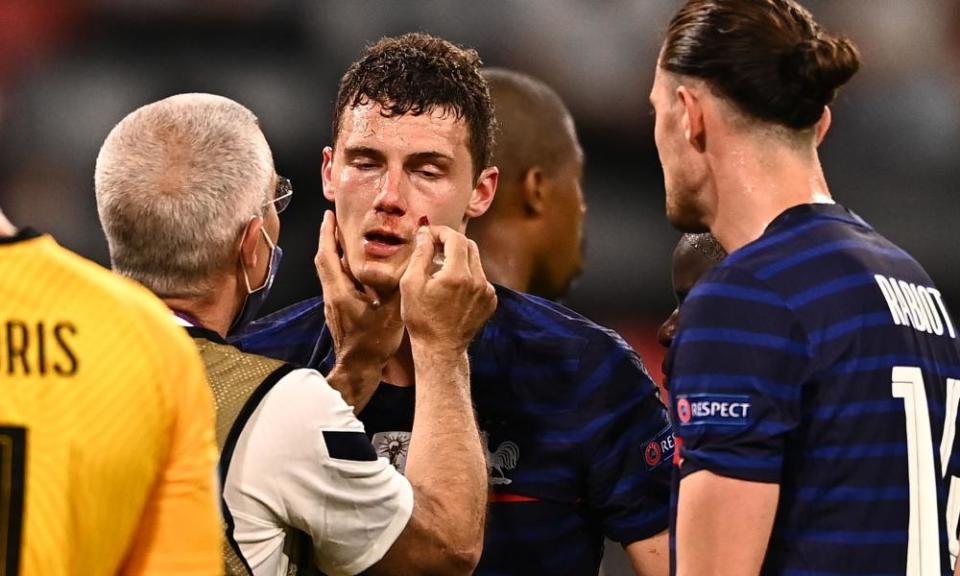‘Sickening’: handling of Pavard’s head blow criticised by brain injury charity

The decision to allow France’s Benjamin Pavard to play on against Germany after he was knocked out in a collision was “sickening”, according to a leading brain injury charity.
Pavard was hit in the face by a challenge from Germany’s defender Robin Gosens in the 58th minute of the Group F fixture on Monday. Although the French Football Federation has committed to a new protocol that would see players suspected of concussion removed from the field, he stayed on.
Related: ‘A hell of a shock’: France’s Pavard lost consciousness in win over Germany
The Bayern Munich defender said he had been “a little knocked out for 10 to 15 seconds”, and the chief executive of Headway, Peter McCabe, said Pavard should have been taken off.
“It was plain for all to see that Pavard was unable to protect himself from the fall,” McCabe said. “Pavard’s later statement that he lost consciousness confirms the seriousness of the incident.
“We have continuously been told that football’s concussion protocols are fit for purpose and that temporary concussion substitutes are not necessary. But here we have yet another example where it is simply not credible to suggest that a concussion could not be ‘suspected’ or a possible consequence of the impact. However, after a brief on-pitch assessment the player was allowed to continue.
“Furthermore, it appeared that the referee [Carlos Del Cerro Grande of Spain] was attempting to speed up the medical team and usher them and the player off the pitch, rather than allowing them the time they needed to assess the seriousness of the injury.
“The way this incident was handled was sickening to watch. Uefa has to come out and immediately explain how it was allowed to happen and what action it will now take to ensure something similar does not occur in the future.”
Uefa said it was in contact with the French federation over the incident. The governing body chose not to include Euro 2020 in the trials of permanent concussion substitutes currently being operated by the rule-making International Football Association Board. It did, however, asks nations sign up to a new protocol on the treatment of head injuries. The international players’ union, Fifpro, said it had made contact with Uefa to establish why the protocol had apparently not been followed.
The head coaches and team doctors of all 24 nations signed up to the protocol, which agreed to the use of new video technology to assess injuries and includes the following, apparently definitive, statement: “We confirm that if a player of our team is suspected of having suffered a concussion, he will be immediately removed from the pitch, whether in training or match play.”

 Yahoo Sport
Yahoo Sport 





































